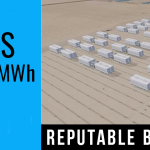
Often, microgrid operators have the choice of either purchasing a fixed supply contract or playing in the market, but not both, said James McGinniss, CEO and co-founder, David Energy, a competitive retail electricity supplier.
“Microgrid customers are often faced with a bad choice: They can take an indexed contract in order to capitalize on arbitrage as a value stream, and thus take energy market risk (be exposed to price spikes), or they can take a fixed contract that eliminates risk but also their ability to capitalize on arbitrage,” he said.
His company is now focusing on providing different variations of fixed supply contracts that allow microgrid operators to earn income by participating in the market, especially demand response programs. He expects the offerings to help reduce risk and allow microgrids operators and owners to earn money providing demand response and other services.
David Energy can provide variable or fixed products. “What matters is that we will structure the deal however a customer likes. What we’re offering that is different in the market is a willingness to structure future arbitrage potential into a fixed product. We’ll take the performance risk on an asset in commodity markets. Or, the customers can stay on a variable rate if they want to take that risk, and use our algorithms to manage their assets and achieve further savings.”
The business model is based on software as a service, providing demand side management, demand response and other options and being paid for it.
How the model works
David Energy provides a package, called Micor, that includes technology-agnostic software that allows for the control of numerous assets while participating in the market.
“When you have solar, a battery and backup generator, you have to find a software company to do demand charge management with the battery,” he said. David Energy generally controls the assets for the customer, but sometimes customers control the assets, if for example they want to be in charge of temperatures in buildings. In that case, David Energy sends real time recommendations to the customer through its dashboard.
Many microgrid projects involve developers and customers pulling together a demand response provider, software for the battery and a retailer for energy supply. His goal is to provide an all-in-one service.
“We’re an energy retailer and we have our own software controls,” he said. “We can step in and provide a fixed supply contract that takes into account the arbitrage potential of a battery.”





